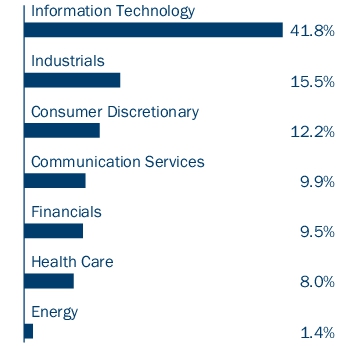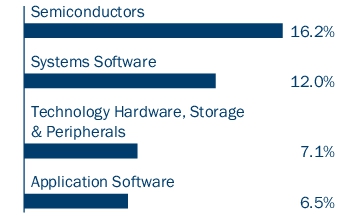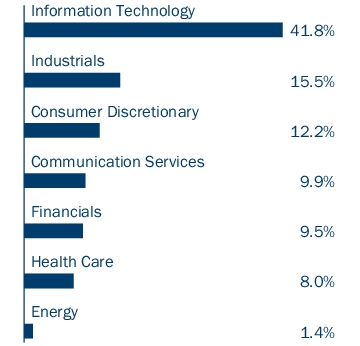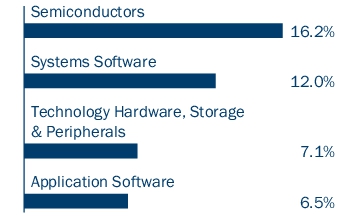Approval of Management and SubadvisoryAgreements (continued)(Unaudited) The Board observed that the compliance program of Westfield, as an existing subadviser, is subject to ongoing review by the Fund’s Chief Compliance Officer and was determined by him to be reasonably designed to prevent violation of the federal securities laws by the Fund. The Board also observed that information had been presented regarding Westfield’s ability to carry out its responsibilities under the proposed Subadvisory Agreement. The Board also considered the information provided by management regarding the personnel, risk controls, philosophy, and investment processes of Westfield. The Board also noted the presentation by Westfield to the Board’s Investment Review Committee.
The Board also discussed the acceptability of the terms of the proposed Subadvisory Agreement. The Board noted the Investment Manager’s representation that Westfield has experience subadvising registered mutual funds, including another Columbia Fund.
After reviewing these and related factors, the Board concluded, within the context of their overall conclusions, that the expected nature, extent and quality of the services to be provided to the Fund supported the approval of the Subadvisory Agreement.
Investment Performance of Westfield
The Board observed Westfield’s relevant performance results versus the Fund’s benchmark and versus peers over various periods, noting outperformance versus peers and industry benchmarks over certain of the 1-year, 3-year, and 5-year periods ended December 31, 2023.
After reviewing these and related factors, the Board concluded, within the context of their overall conclusions, that the performance of Westfield, in light of other considerations, supported the approval of the Subadvisory Agreement.
Comparative Fees, Costs of Services Provided and Profitability
The Board reviewed the proposed level of subadvisory fees under the proposed Subadvisory Agreement, noting that the proposed subadvisory fees payable to Westfield would be paid by the Investment Manager and would not impact the fees paid by the Fund. The Board observed that the proposed subadvisory fees for Westfield were within a reasonable range of subadvisory fees paid by the Investment Manager to the subadvisers of other Funds with similar strategies. The Trustees observed that management fees, which were not proposed to change, remained within the range of other peers and that the Fund’s expense ratio also remained within the range of other peers.
Additionally, the Board considered the expected increase in the total profitability of the Investment Manager and its affiliates in connection with the hiring of Westfield. Because the Subadvisory Agreement was negotiated at arms-length by the Investment Manager, which is responsible for payments to the subadviser thereunder, the Board did not consider the profitability to Westfield from its relationship with the Fund.
After reviewing these and related factors, the Board concluded, within the context of their overall conclusions, that the proposed level of subadvisory fees, anticipated costs of services provided and the expected profitability to the Investment Manager and its affiliates from their relationships with the Fund supported the approval of the Subadvisory Agreement.
The Board also considered the economies of scale that may be realized by the Investment Manager and its affiliates as the Fund grows and took note of the extent to which shareholders might also benefit from such growth. The Board considered, in this regard, the expected slight increase in profitability to the Investment Manager as a result of the proposed Subadvisory Agreement. The Board took into account, in this regard, the significant oversight services provided by the Investment Manager to the Fund. The Board also observed that fees to be paid under the Subadvisory Agreement would not impact fees paid by the Fund (as subadvisory fees are paid by the Investment Manager and not the Fund). The Board observed that the Fund’s management agreement with the Investment Manager continues to provide for sharing of economies of scale as management fees decline as assets increase at pre-established breakpoints. The Board also noted, for the Subadvisory







